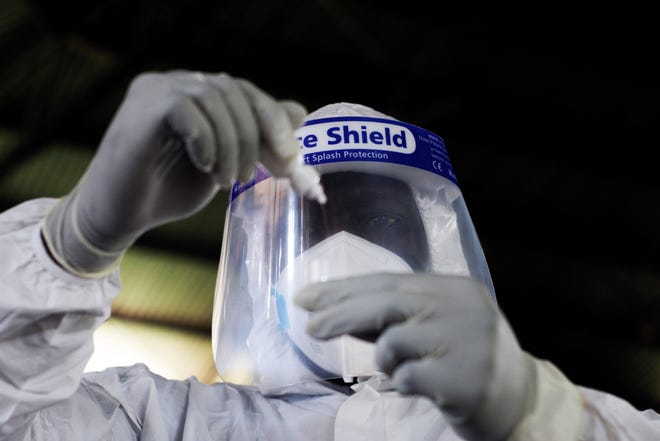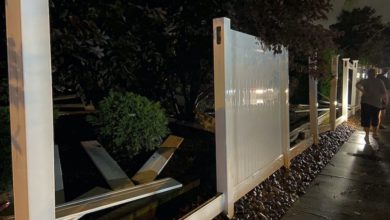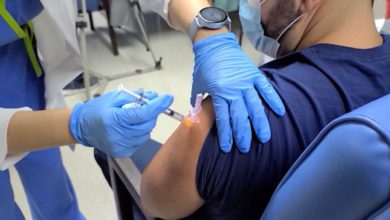
A former American diplomat says U.S. anti-vaccination groups must stop efforts to fuel protests in Canada – and GoFundMe shut down a funding page set up by U.S. groups in support of Canadian truckers and others protesting COVID-19 measures there.
“Under no circumstances should any group in the USA fund disruptive activities in Canada. Period. Full stop,” said Bruce Heyman, a former U.S. ambassador to Canada under President Barack Obama, on Twitter. "How is it many Republicans are publicly more 'concerned' about events in Canada than Russia?"
Protesters opposed to vaccine mandates and other restrictions have held rallies in cities across Canada in a show of solidarity with a week-long trucker demonstration in Ottawa. Ontario Premier Doug Ford and Police Services Board Chairwoman Diane Deans are calling it an occupation and say it must end.
"This group is a threat to our democracy," Deans said. "What we're seeing is bigger than just a city of Ottawa problem. This is a nationwide insurrection. This is madness."
Former President Donald Trump has expressed support for the truckers, who he says are "peacefully protesting the harsh policies of far-left lunatic Justin Trudeau, who has destroyed Canada with insane COVID mandates."
Also in the news:
►An Illinois judge has issued a temporary restraining order that prevents school districts statewide from requiring students to wear masks in classrooms. Sangamon County Circuit Judge Raylene Grischow ruled that Gov. J.B. Pritzker overstepped his legal authority and tossed out several other emergency orders.
►The CDC plans to recommend immunocompromised people get a booster dose three months after their initial sequence, instead of after five months.
►Turkish President Recep Tayyip Erdogan has tested positive for COVID-19, he said Saturday.
📈 Today's numbers: The U.S. has recorded more than 76 million confirmed COVID-19 cases and more than 902,000 deaths, according to Johns Hopkins University data. Global totals: More than 394.5 million cases and 5.7 million deaths. More than 212 million Americans – 64% – are fully vaccinated, according to the Centers for Disease Control and Prevention.
📘 What we're reading: The U.S. has reached a sad marker in the COVID-19 pandemic: 900,000 deaths. When will it end? "Vaccines and boosters are our best option to get out of the pandemic," one expert tells USA TODAY. Read the full story.
Keep refreshing this page for the latest news. Want more? Sign up for USA TODAY's free Coronavirus Watch newsletter to receive updates directly to your inbox and join our Facebook group.

World probably its sickest in a century
Even as it recedes in some places, the omicron variant is leaving a trail of illness perhaps more extensive than any other five-to-six-week stretch the world has experienced in more than a century.
The number of people sickened by omicron is likely bigger than in any other similar spell since the flu pandemic of 1918-19, global health experts told the Wall Street Journal.
Trevor Bedford, a virologist at the Fred Hutchinson Cancer Research Center, told the Journal that about one in five Americans had been infected with omicron by midway through January, and the figure could double by mid-February.
Citing surveys and modeling from the Office for National Statistics, the newspaper said more than one in six England residents contracted the coronavirus since omicron was identified in late November. In Denmark it has been one in five, and in Israel one in nine.
Improvements coming for quarantine hotels at Games, officials say
Officials at the Beijing Games are vowing to address conditions at the so-called quarantine hotels after complaints that food was inedible and the rooms dirty.
Athletes who test positive for the coronavirus during the Winter Olympics have to isolate until they’re cleared to leave, either through tests showing they’re negative or a review by a panel of medical experts. Some of the athletes have said that besides substandard meals and rooms, the facilities where they're isolating have no access to training equipment or the Internet.
“My stomach hurts, I’m very pale and I have huge black circles around my eyes,'' Russian biathlon competitor Valeria Vasnetsova posted on Instagram from one of the hotels, blaming unhealthy food for her misery. "I want all this to end. I cry every day. I’m very tired.”
Christophe Dubi, the International Olympic Committee’s executive director for the Games, said improvements are on the way. “These are exactly the kind of things we have to address,'' Dubi said. "It’s a duty. It’s a responsibility.''
Demand for COVID testing fuels warning about unregulated sites
Hundreds of sites nationwide are hosting pop-up coronavirus testing, capitalizing on lax regulations, financial incentives and high demand for testing. State officials have been warning residents to avoid unregulated sites. But many Americans – without free, quick and accessible alternatives for coronavirus testing – have rushed to the locations anyway.
The federal government has endorsed an all-hands-on-deck approach, authorized billions in federal funds and loosened pre-pandemic safeguards to increase access to testing. The effort pushed COVID-19 testing capacity in January higher than it's ever been, and labs routinely completed more than 2 million tests per day, according to Johns Hopkins University data.
But the strategy also created opportunity for bad actors to take advantage of ripe conditions. The Chicago area-based Center for COVID Control, which claimed to have about 300 testing sites across the country, has drawn complaints about fraudulent practices and had its headquarters searched by the FBI in January.
"There are insatiable demands for testing and a lot of money floating around," said Richard Scanlan, a professor of pathology and laboratory medicine at Oregon Health & Science University. "Undoubtedly, people see that as an opportunity."
– Ken Alltucker and Grace Hauck
Unvaccinated Canadian dad not allowed to see children in person
An unvaccinated Canadian father who questioned the safety and efficacy of the Pfizer-BioNTech COVID vaccine based on his research lost the right to in-person visits with his three children, one of whom is immunocompromised.
Judge Nathalie Godbout in New Brunswick, province of Alberta, while saying she issued the ruling "with a heavy heart,'' made it clear she was unconvinced by the case presented by the father and that preserving the health of his 10-year-old child was the priority.
"His own anecdotal research on such a highly specialized topic carries little to no weight in the overall analysis when measured against the sound medical advice of our public health officials," wrote Justice Godbout of the Court of Queen's Bench.
The order allows the father to interact with the children over Zoom and reevaluate the sentencing if he does get vaccinated, but the mother can overrule his lack of parental consent to get her children vaccinated, according to the ruling, CBC reports.
– Michelle Shen
Nursing students fill in at Las Vegas hospitals during staff crisis
Nursing students are helping relieve staff shortages at Las Vegas-area hospitals, as the omicron variant crowds hospitals and sidelines many health care workers. Nevada health officials are asking for advanced nursing students to fill in as nurse apprentices at hospitals in the state's largest city.
Intensive care beds statewide were at least 90% occupied with patients suffering from a variety of maladies for the better part of January – and projections by the Nevada Hospital Association show that the peak might not have yet hit southern Nevada.
This comes as hospital staffing has hovered at “crisis” levels in the area for four weeks running, according to the hospital association. The designation prompted Gov. Steve Sisolak to appeal for additional health care workers – whether through the state’s Battle Born Medical Corps, a volunteer program launched during the pandemic, or through the nurse apprentice program.
Contributing: Associated Press
Source link








